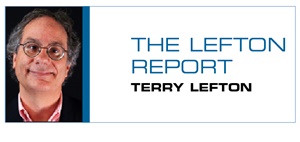Earlier this year, there was much hand-wringing from brand marketers on the buy side and from NFL team sales executives about how the league lockout was going to damage them.
While we don’t enjoy “rich get richer” stories any more than those occupying the park on Wall Street, from a sales perspective, the truth is the four-month lockout hurt the average NFL team’s sales no more than a dismal season on the field.
“We had all kinds of dire contingency plans and budget scenarios, but they never came into play,” said Jim Ross, Cleveland Browns senior vice president of business development. “Sure, it slowed things down, but pretty much all, if not all, of our measurables are in the right directions. The fans are caught up in wins and losses, and for us now, [the lockout, which] was causing lots of anxiety for three to four months, seems like long ago and not very impactful.”
Added Jim Pisani, president of the licensed sports group for longtime NFL licensee VF, “We took a bit of a risk going long on inventory during the lockout, but now we are looking at one of our best NFL years ever, if not our best.”
That’s the same optimism we heard last month from Reebok, now in its last year as the NFL’s master on-field apparel licensee.
As for why the impact was negligible, there are different theories. Many have to do with the strength of the NFL as a sports property, something that could withstand almost anything.
“The league and teams managed communications so well that on the business side, I never heard any doubt that there was going to be a season,’’ said Dan Belmont, president of The Marketing Arm, which has clients including Hewlett-Packard and AT&T with NFL stadium and team sponsorships. “Some properties would take time to recover, but the NFL doesn’t appear to have missed a beat.’’
After the collective-bargaining agreement was reached, the shortened period for free agency signings engendered even more fan interest and seemed to prompt a flurry of business.
“We had fewer deals from March [the lockout began March 12], followed by the most deals ever from July to October,’’ said Bob Reif, CMO of the St. Louis Rams, which renewed Anheuser-Busch for five years along with Charter Communications, and signed Geico to a new sponsorship. “Everyone had our attorney on speed dial. So in a weird way, it helped speed things up.’’
So call it a lesson in reignited demand, and there’s no demand like pent-up demand.
“That short time window created such a compressed, high-intensity buzz for us that what you had was this intense spotlight when training camp opened that we couldn’t have created ourselves,’’ said Houston Texans President Jamey Rootes. The Texans posted double-digit growth in sponsorship renewals and secured new deals with Sonic, Conn’s, BBVA/Compass, First Community Credit Union, BMW, Gallery Furniture and Houston Community College. Season-ticket sales are at a new high.
The Arizona Cardinals had many deals up for the first time since University of Phoenix Stadium opened in 2006. The team renewed them at a 95 percent rate.
“We didn’t know what to expect, but as it turned out, the lockout did not affect renewals for corporate sponsorships or suites, and we knew that within a month after the [July 25] settlement,’’ said Steve Ryan, vice president of business development for the Cardinals, which renewed A-B and Geico, among others. “No one was rushing to sign during the lockout, but it just seemed there was no doubt among our partners the thing was going to get resolved.’’
As you might expect, some teams’ new business efforts foundered, since it’s hard to sell a program when all the news around your property involves the lack of a CBA.
“We did not generate a lot of new business,’’ said Kevin Rochlitz, Baltimore Ravens vice president of national sales, who counted Taco Bell and KFC among his new sponsors. “Our renewals were fine, and I don’t think we are missing out on any activation, so we kept things intact and gained a little bit of new business.’’
Chris Hibbs, Chicago Bears senior director of sales and marketing, said: “I would call our sales year successful, but developing anything new and different with sponsors was difficult. Overall, we’re looking back and saying it wasn’t the disaster that a lot of people forecast.’’
Terry Lefton can be reached at tlefton@sportsbusinessjournal.com.




